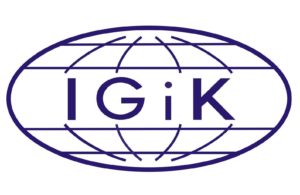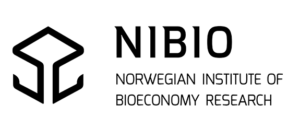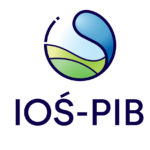 IGIK is a state research institute established in 1945. The Institute conducts a research and applied science in the field of geodesy, geodynamics, gravimetry, remote sensing for agricultural and environmental monitoring, land use/land cover mapping and monitoring, calibration and validation activities, geospatial data integration and analysis, modern cartography. IGIK is acting as one of the EEA EIONET National Reference Centre (NRC) for land cover in Poland. IGIK was involved in developed national land cover/use databases Corine Land Cover since 1990. IGIK takes part in the Erasmus/Mundus educational program. IGIK has established a long-term collaboration with various governmental and non-governmental authorities, national and foreign scientific institutions as well as with industry and SMEs. The carried out at the Applied Geomatics Centre is focused on practical application of geospatial and Earth Observation data for environment monitoring. We are particularly focused on using geospatial data for monitoring of land cover and land use changes, forestry, analysis of crisis situations and spatial planning. We deal with the automation of data processing as well as the harmonization and integration of EO data with other data in the GIS environment. In the Centre, we also use the linked data model together with the SPARQL database query language to store and represent geographic data.
IGIK is a state research institute established in 1945. The Institute conducts a research and applied science in the field of geodesy, geodynamics, gravimetry, remote sensing for agricultural and environmental monitoring, land use/land cover mapping and monitoring, calibration and validation activities, geospatial data integration and analysis, modern cartography. IGIK is acting as one of the EEA EIONET National Reference Centre (NRC) for land cover in Poland. IGIK was involved in developed national land cover/use databases Corine Land Cover since 1990. IGIK takes part in the Erasmus/Mundus educational program. IGIK has established a long-term collaboration with various governmental and non-governmental authorities, national and foreign scientific institutions as well as with industry and SMEs. The carried out at the Applied Geomatics Centre is focused on practical application of geospatial and Earth Observation data for environment monitoring. We are particularly focused on using geospatial data for monitoring of land cover and land use changes, forestry, analysis of crisis situations and spatial planning. We deal with the automation of data processing as well as the harmonization and integration of EO data with other data in the GIS environment. In the Centre, we also use the linked data model together with the SPARQL database query language to store and represent geographic data.
 is a public institution under the Norwegian Ministry of Agriculture. The institute has 700 employees and was formed in 2015 by merging three former institutions. The institute combines two separate, although related functions: One part of NIBIO is a research institute for agriculture and forestry, the other part is a mandated survey and statistics organization for the agricultural and forestry sector. The survey and statistics organization is responsible for statistical surveys, national mapping and monitoring programmes and resource inventories related to, agriculture, agricultural economy, forestry, landscape and land cover. The Survey and statistics division of NIBIO (NIBIO Survey and statistics) is an advanced user of geographic information technology and a major contributor to the Norwegian geospatial data infrastructure. The division is also responsible for the development, maintenance and documentation of standardized land cover and land resources classification systems and the maintenance of the Norwegian land resource mapping system, land cover and vegetation mapping, landscape monitoring, soil mapping and the management of large geospatial databases. NIBIO Survey and statistics is acting as the Norwegian NRC Land to EIONET and is responsible for Corine Land Cover Mapping in Norway. The division participated in the HELM project (H2020) and is a contributor in the EAGLE group.
is a public institution under the Norwegian Ministry of Agriculture. The institute has 700 employees and was formed in 2015 by merging three former institutions. The institute combines two separate, although related functions: One part of NIBIO is a research institute for agriculture and forestry, the other part is a mandated survey and statistics organization for the agricultural and forestry sector. The survey and statistics organization is responsible for statistical surveys, national mapping and monitoring programmes and resource inventories related to, agriculture, agricultural economy, forestry, landscape and land cover. The Survey and statistics division of NIBIO (NIBIO Survey and statistics) is an advanced user of geographic information technology and a major contributor to the Norwegian geospatial data infrastructure. The division is also responsible for the development, maintenance and documentation of standardized land cover and land resources classification systems and the maintenance of the Norwegian land resource mapping system, land cover and vegetation mapping, landscape monitoring, soil mapping and the management of large geospatial databases. NIBIO Survey and statistics is acting as the Norwegian NRC Land to EIONET and is responsible for Corine Land Cover Mapping in Norway. The division participated in the HELM project (H2020) and is a contributor in the EAGLE group.
 We are the State Institute overseen by the Ministry of the Climate and Environment. Our job is to provide scientific knowledge for environmental decision making, ensuring governmental and self-governmental policies are based on understanding of comprehensive current evidence. We are also responsible for providing advice to economic entities, public awareness raising, and shaping of public environmental attitudes.
We are the State Institute overseen by the Ministry of the Climate and Environment. Our job is to provide scientific knowledge for environmental decision making, ensuring governmental and self-governmental policies are based on understanding of comprehensive current evidence. We are also responsible for providing advice to economic entities, public awareness raising, and shaping of public environmental attitudes.
The scope of our work embraces the following fields: Air quality; Waste management; Climate change; Land protection; Noise protection; Emission management; Sustainable development; Ecotoxicology; Environmental analyses; Scientific research; Environmental education.
The Institute has established within its structure the National Centre for Emissions Management (KOBiZE), tasked with managing and governing the Polish part of the EU ETS in Poland, including operation of the Polish part of the Union Registry. KOBiZE prepares also official emission inventories and projections for greenhouse gases and other air pollutants from all sectors (including LULUCF). The results of work performed by the Institute are currently being applied by the Ministry of the Climate and Environment to fulfil Poland’s international commitments in support of protection of air, water, nature and climate, which undoubtfully contributes to strengthening the image of the Institute as a leading scientific–research unit.
Łódź University of Technology (LUoT) Institute of Architecture and Urban Planning
 The Lodz University of Technology is one of the best technical universities in Poland. It has 75 years of tradition and experience in educating engineers. More than 120,000 well-educated graduates are the result of the work of several generations of well-prepared teaching, scientific and technical staff as well as efficient administrative facilities of our university. We are fast-developing technical university with an extensive structure, we educate over 13 thousand. students and we employ 2,700 employees. Education is conducted at nine faculties. We are an attractive partner for business in the region. We work with the largest companies in the country and abroad. We conduct research at the European level, create new technologies and patents in cooperation with the best research centers around the world. In 2016, TUL was the first technical university in Poland to receive the HR EXCELLENCE IN RESEARCH logo. The possession of this label increases the recognition and attractiveness of universities in the European research area as a project partner. Internationalization is one of the foundations of the Lodz University of Technology strategy in the field of research, education, as well as other activities carried out in cooperation with the socio-economic environment. The Institute of Architecture and Urban Planning ING participates in the project on behalf of the Lodz University of Technology. The “architecture” ranks high, sixth place among public technical universities. The course has received the prestigious certificate of the Accreditation Committee of Technical Universities (KAUT) and the European Network for Accreditation of Engineering Education (ENAEE).
The Lodz University of Technology is one of the best technical universities in Poland. It has 75 years of tradition and experience in educating engineers. More than 120,000 well-educated graduates are the result of the work of several generations of well-prepared teaching, scientific and technical staff as well as efficient administrative facilities of our university. We are fast-developing technical university with an extensive structure, we educate over 13 thousand. students and we employ 2,700 employees. Education is conducted at nine faculties. We are an attractive partner for business in the region. We work with the largest companies in the country and abroad. We conduct research at the European level, create new technologies and patents in cooperation with the best research centers around the world. In 2016, TUL was the first technical university in Poland to receive the HR EXCELLENCE IN RESEARCH logo. The possession of this label increases the recognition and attractiveness of universities in the European research area as a project partner. Internationalization is one of the foundations of the Lodz University of Technology strategy in the field of research, education, as well as other activities carried out in cooperation with the socio-economic environment. The Institute of Architecture and Urban Planning ING participates in the project on behalf of the Lodz University of Technology. The “architecture” ranks high, sixth place among public technical universities. The course has received the prestigious certificate of the Accreditation Committee of Technical Universities (KAUT) and the European Network for Accreditation of Engineering Education (ENAEE).
 We are a custom software development company based in Poland. We have been delivering bespoke software solutions since 2003, working with diverse businesses across different sectors as well as public sector agencies active in the space domain. We support customers all over the world in their efforts to innovate and deliver outstanding customer experience through tailor-made, usable software.
We are a custom software development company based in Poland. We have been delivering bespoke software solutions since 2003, working with diverse businesses across different sectors as well as public sector agencies active in the space domain. We support customers all over the world in their efforts to innovate and deliver outstanding customer experience through tailor-made, usable software.
We have delivered a number of projects concerning the standards and concepts of interoperability and operationalisation with the special focus on Earth Observation, including the GEOSS portal and Charter Core Service. We also worked on Web-based software products and medium and large-scale projects in the space domain, including EO Portals and SSA VRE.
Our role in the InCoNaDa project includes the design and development of web-based, responsive application with user-friendly interface that analyses project-generated LU/LC maps with Copernicus Land Monitoring services (CLMS) products.
